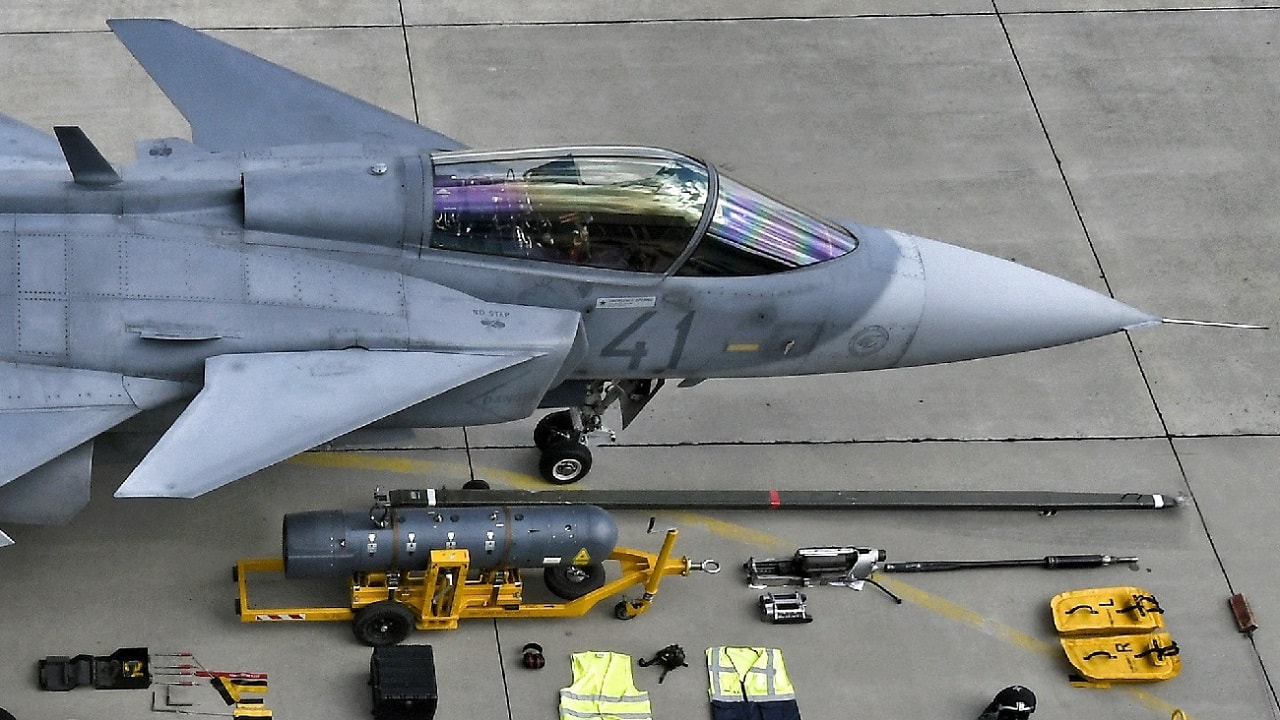¡Ole! At this week’s summit in Madrid, NATO members began the formal process of adding Finland and Sweden to the alliance. The entire process could take about a year, as each member nation must independently ratify the accession of those seeking membership.
NATO has been up and running for over eight decades. So, why are Finland and Sweden only now looking to join? The answer is not as simple as it might appear.
The easy answer is Putin’s invasion of Ukraine—and the sober realization that the Russian’s ambitions did not end there. Putin’s “special” operation was to be only the first step in reabsorbing all the post-Soviet states, reasserting control over Central Europe, and seeing NATO dissolve into a fractious, intimidated shell of its former self. Sweden and Finland realized that, if Putin were able to make his vision a reality, it would leave them, at best, alone, isolated and under his shadow or, at worst, embroiled in World War III.
Certainly, Putin’s invasion of Ukraine triggered a sea change in how everyday Finns and Swedes viewed NATO membership. For years, large majorities had opposed joining the alliance. Some, thought it wasn’t necessary, particularly after the demise of the Soviet Union. Russia, they thought, would be a kinder, gentler neighbor. Others feared joining the club might incur the wrath of Russia. Nice and neutral seemed the default option.
In February, however, European complacency that the continent would never face the threat of another major war melted away faster than a slushy in the Sahara.
Nevertheless, why NATO?
One look at a map partly answers that question. Putin couldn’t move on Northern Europe without going through the Nordic nations. If the war expanded, they were going to be in it one way or another.
There is more to it than that, however. For starters, Ukraine has reinforced the notion that extended nuclear deterrence works. For all his bluster of taking revenge against NATO nations that have the audacity to support Ukraine’s self-defense, Putin hasn’t widened the war. Meanwhile, NATO has scrupulously declined to become an active belligerent, avoiding the possibility of a direct military conflict between armed nuclear superpowers. The American nuclear umbrella is looking like some pretty good insurance.
That said, just as in the Cold War (see North Korea and Vietnam), nuclear stand-off doesn’t prevent conventional conflict. And when this war broke out, what Swedes and Finns saw was that not one NATO nation backed away from Article V, the commitment that an attack on one alliance partner is an attack on all. That pledge included member states that don’t even have a military, like Iceland.
Thanks to American military strength, NATO has long been the most powerful military force on earth. And with the invasion of Ukraine, Sweden and Finland saw that many alliance members who had not been living up to their military commitments to the alliance (most notably, Germany) immediately stepped up their game. With the might of the alliance growing even stronger, membership became even more attractive.
In addition, just as Trump argued, for the alliance to be credible every nation must to do its fair share. In the wake of the attack on Ukraine many nations, most notably Germany immediately agreed to step-up their military commitments.
Further, the U.S. response to the invasion reassured the Nordics, and the rest of Europe as well, that America isn’t going anywhere. There is no pivot to Asia. In fact, the U.S. been putting more force back into Europe since the Trump administration. The U.S. can’t neglect protecting its interests in Europe any more than Sophie really had a choice.
What’s more, even though Biden came into office wanting to offload Europe, Ukraine, and Russia from his to-do-list, and acted like the follower-in-chief from the start of the conflict, the U.S. remains the largest contributor of military assistance to Ukraine, a major reason why the country was able to hold out for more than a month. The reality is U.S. commitment to NATO has been enduring under every modern president—and when you have presidents as different as Biden and Trump that is really saying something about American staying power.
There’s another reason the Nordics know that they can count on America to stick with NATO and Europe: NATO serves a vital American interest. A peaceful and stable Europe contributes to giving the U.S. access to other parts of the world, denies critical strategic space for the malicious actions of Russia and China and delivers strategic partners that contribute to common defense and security.
The last point is really important. Adding Sweden and Finland to NATO makes defending the alliance’s northern flank way easier. Both nations possess robust military capabilities and decades of experience working with the U.S. and NATO. Far from being “free riders” who would contribute little of military value, their entry into NATO will significantly strengthen regional security.
In short, the Nordics know that joining NATO makes the alliance a much more valuable partner for the U.S. That makes it even more likely that the American commitment will remain strong and resilient, and that is the best security insurance policy they could ask for.
Rarely is there a clear win-win in geopolitics. But Sweden and Finland have found a deal that is good for them, good for NATO and good for the U.S.
A Heritage Foundation vice president, James Jay Carafano directs the think tank’s research on matters of national security and foreign affairs. Carafano is also a 1945 Contributing Editor.

